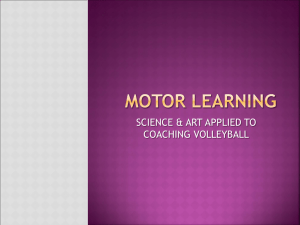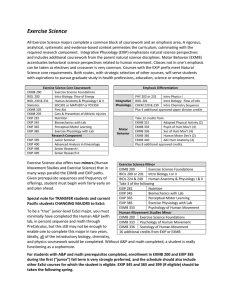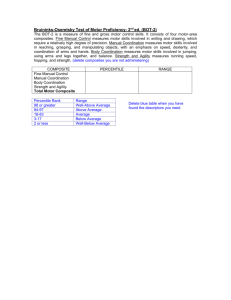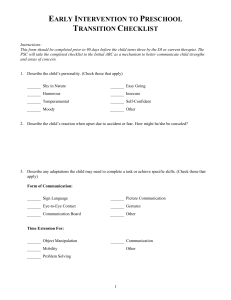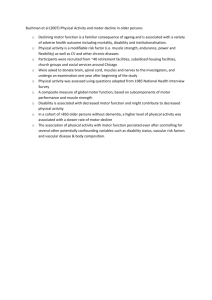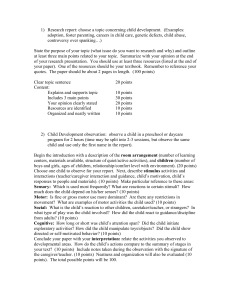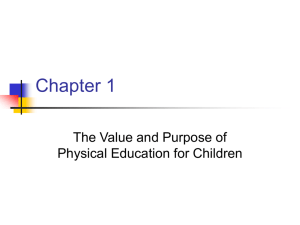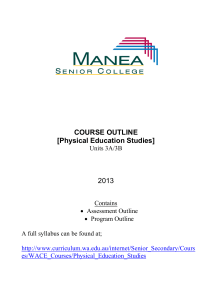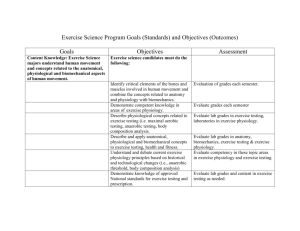Order of courses corresponds to order on page 1. Orientation to
advertisement
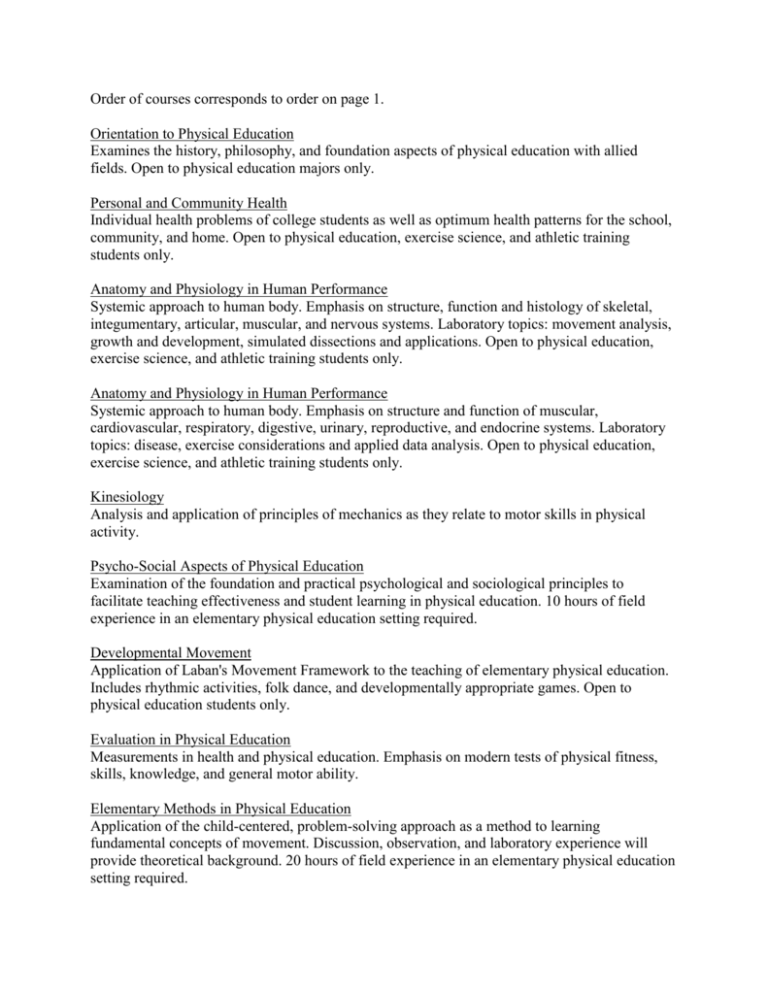
Order of courses corresponds to order on page 1. Orientation to Physical Education Examines the history, philosophy, and foundation aspects of physical education with allied fields. Open to physical education majors only. Personal and Community Health Individual health problems of college students as well as optimum health patterns for the school, community, and home. Open to physical education, exercise science, and athletic training students only. Anatomy and Physiology in Human Performance Systemic approach to human body. Emphasis on structure, function and histology of skeletal, integumentary, articular, muscular, and nervous systems. Laboratory topics: movement analysis, growth and development, simulated dissections and applications. Open to physical education, exercise science, and athletic training students only. Anatomy and Physiology in Human Performance Systemic approach to human body. Emphasis on structure and function of muscular, cardiovascular, respiratory, digestive, urinary, reproductive, and endocrine systems. Laboratory topics: disease, exercise considerations and applied data analysis. Open to physical education, exercise science, and athletic training students only. Kinesiology Analysis and application of principles of mechanics as they relate to motor skills in physical activity. Psycho-Social Aspects of Physical Education Examination of the foundation and practical psychological and sociological principles to facilitate teaching effectiveness and student learning in physical education. 10 hours of field experience in an elementary physical education setting required. Developmental Movement Application of Laban's Movement Framework to the teaching of elementary physical education. Includes rhythmic activities, folk dance, and developmentally appropriate games. Open to physical education students only. Evaluation in Physical Education Measurements in health and physical education. Emphasis on modern tests of physical fitness, skills, knowledge, and general motor ability. Elementary Methods in Physical Education Application of the child-centered, problem-solving approach as a method to learning fundamental concepts of movement. Discussion, observation, and laboratory experience will provide theoretical background. 20 hours of field experience in an elementary physical education setting required. Adapted Physical Education Pedagogical skills and knowledge pertaining to physical education for individuals with disabilities and gifted and talented individuals. Emphasis on program planning and teaching effectiveness in the psychomotor domain. The Curriculum Process in K-12 Physical Education Identification of competency-based, goal-oriented activities appropriate to K-12 physical education. Emphasis on program development and design, instructional process, program implementation, and evaluation. Exercise Physiology Physiological factors which affect human performance in physical education and athletics. Acute and chronic effects of exercise on the respiratory, circulatory and muscular systems. Required laboratory class taken in conjunction with lecture to give students the opportunity to gain knowledge of basic scientific and field tests in exercise physiology. Open to physical education majors only. Organization and Administration of Physical Education Administrative procedures involved in conducting physical education activities, arranging programs, providing facilities and handling staff-class details, finance, publicity, interscholastic, and intramural activities. Secondary Methods in Physical Education Curricular content of physical education for secondary teaching is discussed and analyzed. Methods and techniques of teaching are presented and opportunities for teaching provided. Course is a prerequisite to student teaching. Open to physical education majors only. 20 hours of field experience in a secondary physical education setting required. Lifespan Motor Development Study of changes in motor behavior across the lifespan; processes that underlie these changes, and factors that affect them. Emphasis upon the young learner, task analysis and developmentally appropriate instruction. Motor Learning Examines the principles of motor learning which affect skill acquisition of secondary and postsecondary school learners.


